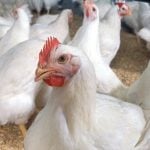The United States will appeal the most recent World Trade Organization decision on country-of-origin labelling, a decision that was in Canada’s favour.
The appeal was fully expected by the Canadian cattle and pork industries but nevertheless comes as a disappointment because it will delay any resolution to the trade issue until at least next year.
Federal agriculture minister Gerry Ritz and federal international trade minister Ed Fast stated their disappointment earlier today.
“Canada fully expected the United States to live up to its international trade obligations and comply with the WTO ruling, which reaffirms Canada’s long-standing view that the revised U.S. COOL measure is blatantly protectionist and fails to comply with the WTO’s original ruling against it,” the ministers said in a joint statement.
Read Also

Canola groups disappointed in Carney’s plan to help growers, biofuel
Two national canola organizations said they’re not pleased with the federal government’s announcement on helping canola growers and the biofuel industry. The Canola Council of Canada and the Canadian Canola Growers Association expressed their disappointment in a Sept. 5 news release.
“With this delay, the United States is yet again preventing both of our countries from enjoying the benefits of freer and more open trade and is hurting farmers, ranchers and workers in the United States and Canada.”
The WTO has ruled that U.S. COOL legislation discriminates against Canadian cattle and hogs and thus contravenes international trade rules. COOL has cost the two meat industries an estimated $1.1 billion annually.
Its requirements force U.S. meat packers to label products from other countries separately, adding costs and discouraging them from buying Canadian cattle and hogs.
Canada and Mexico challenged COOL at the WTO level, and the international body has ruled in their favour three times.
Ritz has repeatedly stated Canada’s intention to apply retaliatory tariffs if the U.S. does not amend or scrap COOL. The U.S. amended the legislation once already, but those changes were deemed insufficient to address trade rules.
“We are confident that the WTO appellate body in the compliance process will uphold the principal finding of the report: that the amended U.S. COOL measure discriminates against Canadian livestock. That finding marks another clear victory for Canada and recognizes the integrated nature of the North American supply chain,” the federal ministers said in a news release.















